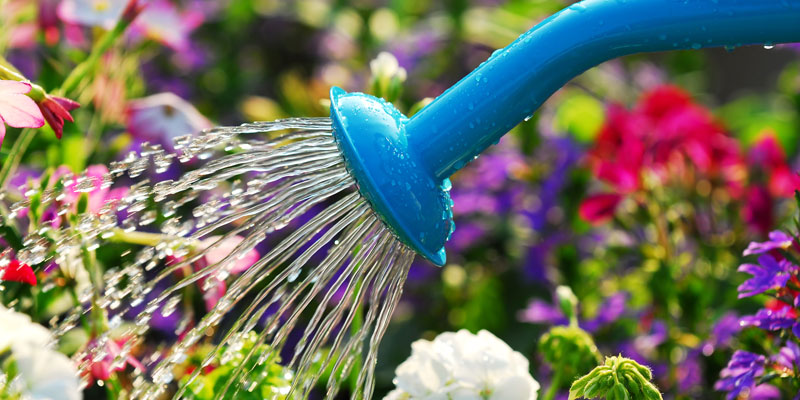As we all know, the spring and summer months are generally warmer and more inviting than the fall and winter months. Many of us look forward to more time spent outdoors, whether it be to maintain our lawns, wash our cars, or managing and harvesting our gardens. Consequently, water usage and wastage dramatically increase in these warmer months.
We all know what follows after that: higher water bills, less efficient water usage and even water wastage. Many of our customers, whether cost-conscious or eco-conscious, often ask us how they can save water this spring and summer. Below are eight ways to help any household save water, reduce water bills, and keep the environment hospitable.
1. Water Your Garden Very Early in the Morning and Late in the Evenings
Watering the lawn or garden is a must during these seasons to keep the plants alive and healthy. When you do it at the wrong time of the day, you may end up wasting a lot of water. That’s because water tends to evaporate faster when the sun rises high in the sky.
So, sprinkle your yard and garden early in the morning before 10 am and later in the evening from 6 pm onwards. This increases the chance for water to stay in the soil longer as the temperatures are lower and there is lower evaporation rates.
Also, remember to adjust your hose and sprinklers’ nozzles to ensure they only water the lawn and garden (and not the driveway, street, or sidewalk). A drip irrigation system can be the best upgrade option, and a plumber can often help with the installation process. Additionally, replace the thirsty turf grass on your garden with drought-resistant grass that doesn’t drink up a lot of water.
2. Use a Dishwasher
You may think this point is counterproductive, but using dishwashers with Energy Star certification can conserve a significant amount of water. It is highly efficient as there’s no running sink while handwashing every dish.
Statistically, washing your dishes by hand consumes about 25 gallons of water, whereas an Energy Star-rated dishwasher only uses about 3 gallons. If you have an inefficient dishwasher, consider upgrading your appliance to one of the eco-friendly options available today.
3. Cover Your Pool
Do you have a backyard pool? If yes, make sure to cover it when not in use. This will help to reduce the rate of evaporation due to direct heat from the sun and terrestrial radiation. Otherwise, you’ll be forced to refill the pool with water more often. By covering the pool, you not only keep the water inside more temperate and cleaner, but you can also save in the frequency of having to add water to your pool.
4. Inspect for Any Leaks in Your Plumbing System
Dripping water from the kitchen or bathroom faucets, showerhead, or even the toilet contributes heavily to water wastage. The amount of water loss in a single day due to silently leaking water systems can be up to 100 gallons.
Checking for any leaks in your home and fixing them can be a critical step in saving water. Having problems fixing the leaks in Winston-Salem, NC? Well, Bodenheimer Plumbing Services, Inc. has got you covered.
5. Make Your Shower Brief
Since spring/summer months are hotter, most of us get tempted to take more frequent showers or stay in the cool water longer to beat the heat. Reducing your showering time by two minutes can save nearly 1750 gallons of water per individual in a home every year. You can also switch off the shower while shaving or applying soap to help save water.
Trap the water that often runs off while waiting for the shower to warm and use it to water plants. And if you intend to re-use soapy water for watering your garden, be sure the soap is safe for plants. More importantly, let a plumber install water-efficient faucets, showerheads, or toilets in your home to reduce water wastage.
6. Get Rain Barrels
Installing rain barrels beneath the downspout of your gutter system offers a great way to collect the water that runs off the roof when it rains. You can then use it to water your garden and yard. Ultimately, this technique will help conserve water and the environment.
7. Take Your Vehicle to a Car Wash
This is another point that may sound counterproductive at first glance. Many of us look forward to washing our cars in the spring and summer months – whether dirty from the winter months or from that beach vacation. But did you know you can use about 100 gallons of water for washing a car while at home? If you’re going to wash your car, taking your vehicle to the car wash will significantly help save water as they often recycle it. A typical commercial car washer usually uses barely 40 gallons of freshwater for a 10-minute wash. Thus, it will be more water, time, and cost-efficient than doing it all at home.


